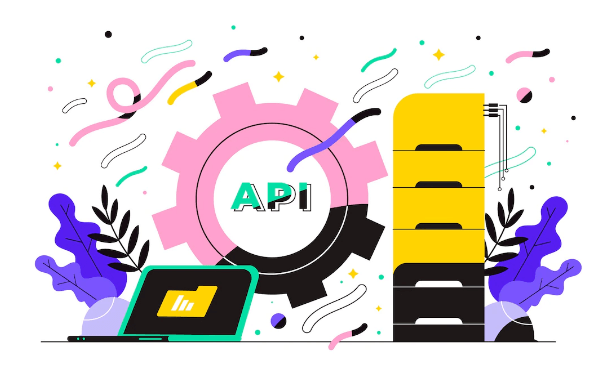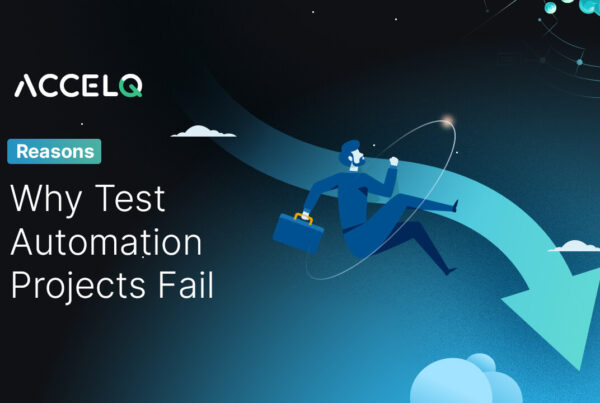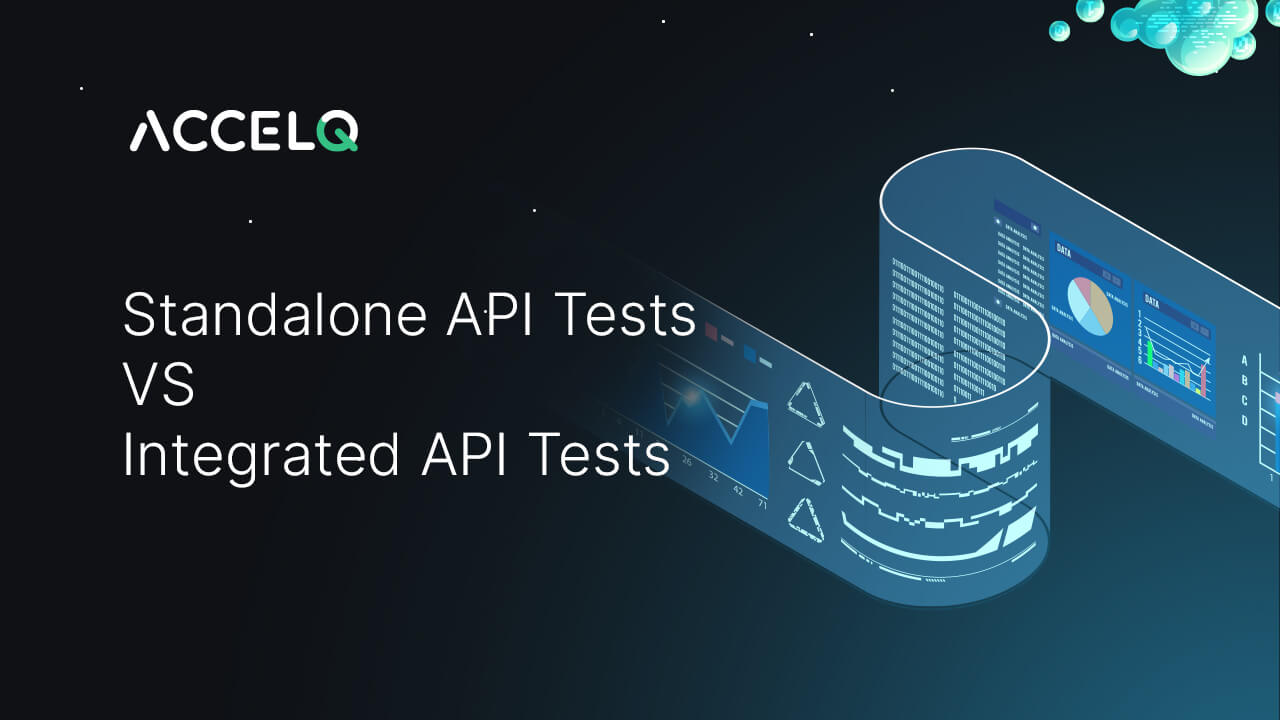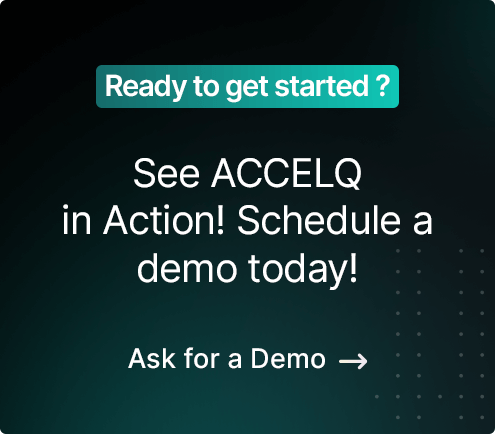Standalone API Tests vs. Integrated API Tests

What are the best approaches to API testing? To answer that, this article will cover the following:
Why Is API Testing Important?

In recent years, there has been a significant increase in the adoption of third-party tools and applications. Along those lines, an Application Programming Interface (API) is crucial for integrating such tools to build high-quality solutions and create a seamless customer experience.
By industry estimates, there are over 200 million APIs currently in use.
API testing is the recognized testing method to check if APIs are working as expected. Software organizations can perform API testing manually or through automation testing. In technical language, API testing comprises the following steps:
- Send a call to the target API
- Receive the output
- Validate the response to the defined input parameters (for example, data accuracy and error codes)
The type of API testing depends on the type of API, including Web APIs, Operating system APIs, and Remote APIs.
Why is API testing important? In today's Agile process environment, development teams require instant feedback to achieve faster time to market. Therefore, companies prefer testing methodologies like Unit testing and API testing.
On its own, unit testing is insufficient for verifying functional paths and API services. This is because unit testing aims to verify if a particular module works as per the required functionality or not. On the other hand, API testing can be done only after the complete build is ready. To ensure that the API testing does not delay the time to market, companies must start API testing from the early stages of development. These tests can also execute from the start of the product development cycle. This ensures that a majority of bugs and errors in the API are detected and resolved before they create major problems.
There are primarily two approaches to API testing, namely:
- Standalone API testing
- Integrated API testing
Next, let's understand these in detail.
What Is Standalone API Testing?
44% of application developers spend most of their time fixing bugs.
Standalone API testing is all about starting API testing early in the software development cycle. Using a shift-left test strategy, developers can create and trigger an API test in the early coding stage of their development. This ensures that for any new product feature, the APIs work as per the expectations.
Standalone API testing benefits product development companies by providing early feedback about product features or enhancements. This is a significant cost- and time-saver for development and QA teams as they can report and resolve any API-related issue before they become complex problems.
Therefore, standalone API testing is an effective way of building a culture of quality in the organization. But when to use standalone API testing? Let's discuss that next.
When To Use Standalone API Testing
As discussed, Standalone API testing offers an efficient way to shift left API testing to the early stages of the application development cycle. This form of API testing is a good fit for product development companies that require continuous testing in an Agile or DevOps environment.
Continuous testing enables product companies to:
- Shorten their product release cycles through test automation
- Provide immediate feedback on software quality
- Integrate non-functional testing in the software testing process
- Boost collaboration within the development, testing, and operations teams
With standalone API testing, QA teams can also perform API automation testing through every step of the continuous integration and delivery process.
Next, let's look at integrated API testing.
What Is Integrated API Testing?
As part of end-to-end or E2E testing, integrated API testing checks if communication between application modules is occurring properly or as expected. Integrated API testing checks for critical user actions. For example, for an eCommerce application, the action could be completing an online purchase, or for a healthcare system, it can be scheduling an online appointment.
Each of these real-life scenarios potentially relies on third-party APIs, thus making it necessary to conduct end-to-end API testing.
How does an integrated API testing approach benefit companies? Here are some of its benefits:
- Improves the overall efficiency of end-to-end testing
- Extends the test coverage by checking for public APIs typically used by customers or end-users
- Improves the speed and effectiveness of automated testing in the later stage of the app development process
- Improves the overall speed and efficiency of E2E testing
Overall, integrated API testing can accelerate automation testing, thus delivering software products in shorter cycles. Next, let's discuss when to use integrated API testing.
When to use Integrated API testing
As explained in the previous section, integrated API testing is an efficient way of testing communication between application modules. With unit testing, individual modules are efficiently checked for business logic. However, unit testing does not check if seamless communication between two (or more) modules is happening as expected.
Here is a real-life scenario of two modules that performs the following task:
- Module 1 checks for the capitalization of the first letter of a username input.
- Module 2 passes the validated name (from Module 1) and stores the username in the database.
An integrated API test can check if:
- Module 1 has successfully validated the username.
- If yes, then Module 1 must make the call and pass the validated username to Module 2.
Conclusion
In reality, standalone and integrated API testing both play a crucial role in improving the overall quality of any software product. Hence, QA teams must create a comprehensive API testing strategy using automation testing to deliver value to their development efforts and customers.
With its expertise in test automation, ACCELQ provides product companies with a comprehensive approach to API testing. Our Codeless API Test Automation platform can improve the efficiency of your API testing requirements.
Here are some reasons to consider ACCELQ's API test automation platform:
- Codeless test automation powered using cloud technologies
- Support for both API and UI test automation
- Complete support for both SOAP and RESTful as backend API services
- Support for popular messaging services like Apache Active MQ and TIBCO
By using the ACCELQ test automation platform, companies have achieved:
- 3-times faster speed in implementing API regression testing
- In-sprint automation that ensures continuous testing and delivery
- 70% reduction in manual efforts
Do you need professional help with your API testing requirements? We can assist you. Sign-up for a product demo!
Yuvarani Elankumaran
Technical Consultant at ACCELQ.
Yuvarani Elankumaran is a highly skilled technical consultant at ACCELQ. With over a decade of experience in the field of Test Automation, Yuvarani is a seasoned professional who is well-versed in a variety of programming languages and automation frameworks.
Related Posts
 Don’t use Manual Test cases for Automation
Don’t use Manual Test cases for Automation
Don’t use Manual Test cases for Automation
 What are the Causes of Failure in Test Automation? (And How to Avoid It)
What are the Causes of Failure in Test Automation? (And How to Avoid It)





































